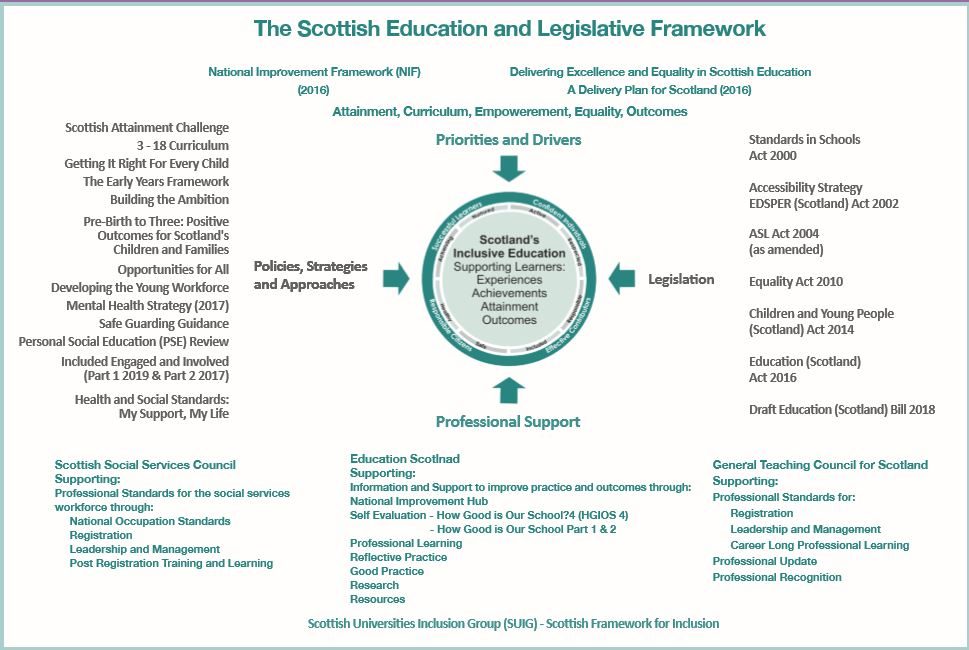
Scottish education is based on the belief that education is a human right and that all children and young people should be supported to reach their fullest potential. Scotland’s education system is designed to be an inclusive one for all children and young people in Scottish schools with or without additional support needs.
Scotland’s ‘needs led’ system places the learner at the centre and the provision of support is not dependent upon a formal label or identification of need such as dyslexia, autism or a physical disability. Figure 1 below, provides an overview of the national legislation and policy which underpins the Scottish educational context of inclusive and equality. It is not intended as an exhaustive list of all Scottish policies which refers to inclusion, but gives a broad overview of some of the key policy documents.

NATIONAL GUIDANCE
National Guidance has been published which provides a strong legislative framework for promoting inclusive practices in Scottish Schools. All learning establishments should have knowledge and awareness of all relevant National Policies and procedures.
The Scottish Government’s Guidance on the Presumption to Provide Education in a Mainstream Setting (2019) highlights that those with additional support needs should be enabled ‘to thrive as part of their class, their school and their wider community’. Mainstreaming is ‘a central pillar’ of this approach. This inclusive approach not only allows children and young people to thrive in their community but also contributes to all children and young people’s understanding and appreciation of diversity and helps to build a more just society.
How Good Is Our School? (4th Edition) states that: ‘Inclusion means taking positive action and intervening in order to enable achievement for all by building and fulfilling the potential of every child, young person and adult’.
Inclusive education in Scotland starts from the belief that education is a human right and the foundation for a more just society. An inclusive approach which recognises diversity and holds the ambition that all children and young people are enabled to achieve to their fullest potential is the cornerstone to achieve equity and excellence in education for all of our children and young people.
The Equality Act 2010 came into force in on 1 October 2010. It places a general duty on local authorities to have due regard to the need to: eliminate discrimination, harassment and victimisation that is prohibited under the Act; advance equality of opportunity between people who share a protected characteristic and those who don’t; and foster good relations between those who share a protected characteristic and those who don’t.
Education Scotland are committed to developing practitioners’ understanding of equality and diversity issues so they can:
- identify groups at risk of not benefiting fully from education and take action to meet their needs; and
- • help all learners develop the understanding of equality and diversity issues essential for responsible citizens in the 21st century
